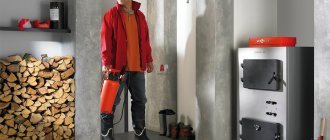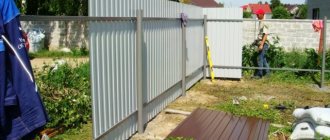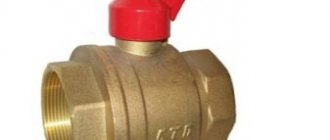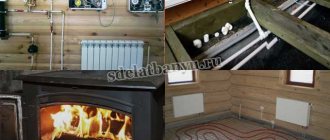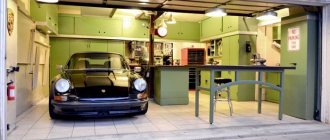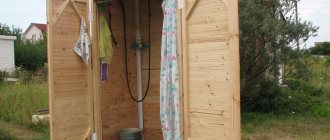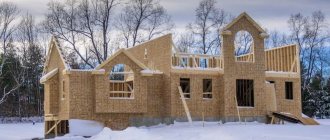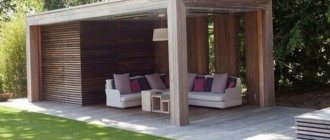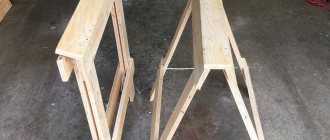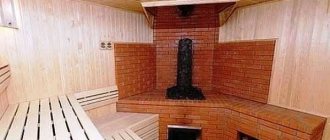The summer season is coming to an end. Many city dwellers are ready to come to their dacha in winter, but cannot solve the heating issue. We want to introduce you to the most common methods of heating a country house during the cold season.
We do not live in those latitudes where in winter the sun “distributes” heat for free. We have to pay for it: either with money or with our own labor. How can we heat our home?
The cheapest way is to use firewood, but we definitely need to put a lot of work into it. A simpler, but more expensive option is gas. The simplest and most expensive heating option is electricity. Which method is best for a country house?
What determines the choice of heating method for a summer house?
As a rule, a summer house is an object of periodic use, especially in winter. People travel outside the city to relax and enjoy clean air, and some even live in their dachas permanently.
The country houses themselves vary greatly - from light and poorly insulated to real cottages with several floors.
When choosing heating options for your dacha, you need to consider a number of important points:
- frequency and duration of stay in winter;
- what energy resources are available and will cost the least;
- distance from populated areas and organization of security of the holiday village;
- need for hot water supply.
In each case there may be additional nuances. For example, a dacha is combined with a bathhouse and it is more correct to provide one heat source for them. Or you have a large family, then you need to maintain a higher temperature in the rooms. The nuances must be taken into account when choosing a heating method.
Particular attention should be paid to the issue of security; this is one of the features that distinguishes a dacha from an ordinary private house. Unfortunately, security in holiday villages is often poorly organized or non-existent, and burglaries are not uncommon. Imagine that you bought and installed expensive electric convectors, and they were stolen after you left. It turns out that the massiveness of the heat source plays an important role, so that it cannot be dragged away. These include heavy boilers, brick fireplaces, stoves, and so on.
Recommendations on how to save on heating a country house
It has been observed that heat leaks affect the speed and efficiency of heating rooms. Up to 20% of the heat usually escapes through old wooden double-glazed windows. Through cold walls - up to 40%, through doors - up to 20%, through the floor - 10%. Accordingly, if before the onset of cold weather you fix leaks and insulate the walls, then within an hour you will be able to feel in a country house just like in a city apartment.
And further. The most economical heating for a summer house in terms of fuel consumption is gas . Therefore, if it is possible to connect to the highway, then it is better to choose it as a priority.
Heating system requirements
Depending on individual conditions, different requirements may be imposed on the heating of a country house, but there are also general ones that will always be relevant:
- quick heating of rooms;
- the heating system must use available energy carriers, possibly several;
- reasonable cost of equipment and installation work;
- efficiency and economy;
- the ability to function in periodic mode and withstand frost during downtime without consequences.
In order to make it easier for you to choose the optimal method of heating your dacha, we will consider real options for heating with different energy sources and how well they meet the listed requirements. Then you can add your wishes to them and determine which method is better.
No. 7. Infrared heaters
Infrared heaters are 20-35% more economical than conventional electric boilers , and experts are confident that such devices will soon become on par with traditional heating systems. So far they are losing to their competitors in terms of popularity, but the demand for them is growing at an immediate pace. The principle of operation is to convert electricity into infrared rays, which heat not the air, but objects, like the sun. Heated objects release heat to the environment, and the room temperature rises. Objects are heated only in the area where the heater rays are directed.
Infrared heaters are presented in two modifications:
- devices on legs;
- flat panels that are attached to walls or even ceilings.
It will not be possible to quickly heat a room in this way, but due to their efficiency, environmental friendliness and operating features, infrared heaters can be used as an independent source of heat in a country house , unless, of course, they live there permanently. Remember that such devices are often placed in the open areas of cafes, so for autumn and spring outdoor gatherings these heaters will be just right - you will get a warm and cozy relaxation area.
The power of such devices ranges from 0.25 to 3-4 kW. Infrared heaters are fireproof and durable, can last up to 25 years .
Electricity
At the moment, most holiday villages are not gasified, but electricity is available almost everywhere. Accordingly, electric autonomous heating without gas is of great interest and deserves consideration as one of the most affordable options. Its advantages are speed and low cost of installation, relatively low cost of equipment and reliability in terms of frequency of operation.
As for economy and efficiency, any electric heaters take first place in this regard. Their efficiency is 98-99%, which is higher than when burning any type of fuel.
The modern market offers a wide selection of means for heating a dacha with electricity. For well-guarded dachas or those where residents stay permanently, any of them are suitable:
- convectors and fan heaters;
- oil radiators;
- infrared heating systems;
- cable and film heated floors;
- water heating with electric boiler.
Electric fan heaters and convectors warm up the room the fastest, at least according to human sensations. Oil radiators take a little longer, but they also take longer to cool down. All these devices heat the air in the house and do not require installation, except for wall-mounted convectors. This household appliance can easily withstand the cold, and its maintenance comes down to periodic cleaning.
In an apartment, the light weight and size of an electric heater are an important advantage, while in an unguarded dacha this is a disadvantage; the devices are easy to steal. In addition, such electric heating will not provide the house with hot water, and for a certain part of people it causes discomfort and affects well-being.
Infrared heating devices have the same disadvantages, only the higher cost of equipment and installation work must be added to them. The exception is portable infrared heaters, but they feel like they warm up rooms too slowly. To feel the heat emanating from them, you need to be in the radiator’s coverage area. On the other hand, infrared heating does not have a negative impact on human well-being.
Which electric boilers are most often used to heat a private home?
There are 4 varieties:
- heating elements;
- electrode;
- induction;
- heat pumps.
The first ones are the most common. Their advantages:
- affordable price;
- low requirements for the coolant: it only needs to be desalted once before the first use;
- simple and inexpensive repairs;
- soft start (prevents power surges in the network).
Electrode boilers are cheaper than heating elements and are simpler in design. But the user has to prepare the coolant according to the recipe. At the same time, its chemical composition is constantly changing, so every 1.5 months it is necessary to pour new liquid into the circuit. This makes operation difficult.
Induction boilers, on the contrary, are able to work with any coolant, but their price is 4 times higher than that of heating elements.
Both of the latter types have a common drawback: their design does not provide for a soft start, so when switched on, voltage surges occur in the network.
If funds allow, it is advisable to purchase a boiler that operates on the principle of a heat pump. It is beneficial to use it. For every kilowatt of electricity consumed, the device produces up to 5 kW of heat. But the system will require a lot of money: in addition to purchasing an expensive device, you will have to pay for the construction of an extensive external heat exchanger (a long circuit of pipes in the ground).
Stationary heating means with electricity
Electric cable or film floors are perfect for heating a dacha. True, you will have to incur costs for the purchase of heating elements and installation under the floor covering or in the screed. But such equipment starts easily from subzero temperatures, and it is also impossible to steal.
Disadvantages are long-term heating of the premises and the inability to heat water; this requires an electric boiler or a separate water heater.
The most convenient and functional traditional heating method is a water system with an electric boiler as a heat source. Its negative aspects are significant financial costs for installing the system and a long heating time for the building. In addition, during your absence, the water system is in danger of defrosting. But by installing a small indirect heating boiler in addition to the boiler, you can get hot water for household needs at your dacha.
To avoid defrosting, you need to purchase antifreeze, and use it to prepare and pour liquid into the heating system.
Important disadvantages of electric heating in general are the high electricity tariff and the limited power consumption limit. Regarding various heaters, you could see for yourself that they all have pros and cons; the appropriate option is selected individually.
Some useful tips
If your home maintains a constant temperature of about 5©, this is enough to “start warming up”. Stable temperatures will be ensured by high-quality insulation of doors, windows, roofs, floors and ceilings. They cannot be neglected: this will lead to large heat losses. Heating systems will not be able to warm up a room that does not have reliable insulation.
Use electric heaters with temperature sensors. There are safe devices that can be left unattended for a short time. In winter, save heat and do not heat unused rooms. For wintering at the dacha, a heated kitchen and one room are enough. Place other parts of the house in case of emergency.
When installing a boiler or furnace, learn how to properly add and use fuel. This will help you retain heat and maximize the efficiency of your heating system.
There are many ways to heat private homes. Each of them has its own specifics. Before installing a boiler or furnace, you must take into account all the details of their operation. You can make a simple stove yourself, but to install a complex installation it is better to invite a specialist.
Gas
Of course, gas heating is one of the most convenient for a dacha; there will be quick heating and hot water. The efficiency of the installations is high, reaching 92%. But the price of the resource varies greatly in different countries. In the Russian Federation, heating a dacha with gas is realistic, in Belarus or Ukraine it is already problematic, where its price is much higher. And gas mains are not laid in dacha cooperatives, with rare exceptions.
When the house is gasified, heating in the dacha can be done in two ways:
- install a double-circuit boiler and mount pipelines with radiators;
- install gas convectors in the premises, thereby organizing air heating.
The main difficulty when installing gas heating is obtaining permission to connect to the main line. Carrying out the procedure in relation to a country house is not economically feasible. The solution is to heat with liquefied gas, but this only makes sense in Russia, where the price of fuel is acceptable.
Video instructions for installing the economical Galan boiler
The undeniable advantage of such a boiler is its fast heating. high fire safety, no connectors. which often cause leakage. At the same time, the boiler operates even at low power, which other types of boilers cannot do. Unlike conventional heating elements, scale cannot be deposited on such boilers
And what is very important, the performance of such a boiler does not decrease over time. And their service life reaches 25 years or more
Organizing heating using a gas boiler is considered the most economical and convenient. However, for people living in areas where there is no central gas pipeline, they have to look for other options. In particular, a solid fuel or electric boiler, and more and more people are leaning towards the latter. This is due to the fact that in the first case it is necessary to purchase fuel and be able to heat it correctly, because with a small amount of firewood or poor coal, this is a real science.
The only disadvantage of electric heating is the dependence on energy supply and increased power, which also causes increased costs. Therefore, the question arises, what is the most economical electric heating boiler? The household product category includes models with a power of 3-60 kW, although in most cases it is no longer practical to install boilers larger than 10 kW due to possible network overload. Thinking about how to choose the most economical electric heating boiler, we can say that a power of 5 kW is quite enough to heat an area of 80 square meters, i.e. for a large three-room apartment or an average house.
People who have the opportunity to choose between several methods of organizing heating involuntarily have a question: which boiler is more economical - gas or electric? We can definitely say, assessing current energy prices, that gas heating will be much more economical. If an exclusively electric option is considered, then it is necessary to highlight several ways to increase its efficiency:
• purchase a modern, more expensive model with a built-in thermostat, which allows you not to “overheat” the room when weather conditions improve;
• ensure high-quality thermal insulation of the house by making an external coat, installing dense sealants on windows and doors, etc.;
• install a two-zone meter that calculates the electricity consumed at night at a tariff that is 5 times less;
• organize a system with forced circulation of coolant.
Stove and solid fuel boiler
Heating your dacha with wood is the easiest thing to do if you are not in the desert. There is no need to obtain any permits, and it is impossible to drag away bulky equipment. Both the stove and the boiler feel normal at low temperatures, this is important for periodic use. An exception is boilers equipped with electronic control units; this modern technology may fail when started in cold weather. So it is better to organize heating of a country house with a solid fuel boiler of a simple design, without electronics. The efficiency of such units does not exceed 75%.
The heat generator, as in the case of gas, will have to be connected to a water heating system, filling it with antifreeze. At the initial stage, count on a significant investment of money, since equipment, piping elements and heating devices with pipelines will not be cheap. When the house is small, this is irrational; it is better to organize stove heating. The choice of metal stoves is extremely wide; you can choose the right one both for money and for every taste.
Metal and brick stoves with water heating quickly heat up themselves and warm up the room; in addition, they can supply heat to radiators in adjacent rooms, as well as prepare water for hot water supply. But the efficiency of the furnaces is low - about 60%.
Building a brick stove is not always expensive; here you need to choose a successful design, for example, build a Dutch stove or a small Swedish stove. It can include a hob for cooking, an oven and a water tank. For aesthetes, we can advise you to build a fireplace out of brick or purchase a ready-made metal one.
Despite all their advantages, stoves and fireplaces require chimneys and also take up a lot of space. A solid fuel boiler can be taken outside into an extension, but the stove will take up useful space in the house.
Metal stoves
The efficiency of a metal furnace depends on the density of the fuel. There should be no free space between solid elements. Firewood inside a metal stove must be placed in a cage. The denser the filling, the longer it will burn, providing heat to the entire room. When properly stacked with firewood, a metal stove retains heat for 24 hours.
As wood smolders, it releases heat energy, and the stove has a special compartment for air supply. The characteristics of the metal affect heat transfer and thermal conductivity. Despite the weak accumulation of heat, the thermal conductivity of the metal is high. This stove produces heat efficiently, is compact, and can be installed anywhere. Cast iron stoves are reliable and last longer than products made from other materials.
Advice! You can buy a stove of an unusual shape to decorate your country house setting.
Metal stoves are not installed in large houses, because they will not provide a comfortable temperature in a building with a large area. Their safety level is lower than that of stone or brick products, but they are quite suitable for a small dacha. You need to follow safety precautions and stack firewood correctly.
Diesel fuel
This case is appropriate if the owner of the dacha no longer has any energy resources at his disposal. This really happens, diesel heating comes to the rescue when there is no gas, the limit on electricity consumption is too small, and transporting firewood is too far or expensive. The cost of the equipment is comparable to gas, as is the efficiency (92%), only connection permits are not required. This is where the positive aspects end, the reason is the price of diesel fuel, the operation of a diesel boiler cannot be called cheap.
To heat a dacha with diesel fuel, in addition to the boiler, you still need the same water heating system and radiators filled with antifreeze. The water heating function is also available if you purchase a dual-circuit heat generator. A warning is appropriate here: it is better to take the unit with a minimum of electronics, which can fail at subzero temperatures.
For those who like to do the heating installation themselves, there is an alternative: a homemade boiler using waste oil. You can make it yourself, spending a minimum of money. The game is worth the candle, provided that such fuel is available to you.
Other heat sources
To estimate how much an electric heating boiler consumes per month, you need to compare it with other energy sources. It should be taken into account that the efficiency of fuel boilers does not reach a hundred: for gas boilers it is about 93%, for wood and coal boilers it is about 85%.
Below is the cost per 1 kWh for different types of fuel:
- Natural gas: 0.68 rubles, taking into account efficiency – 0.75 rubles.
- Oak firewood: 1.09 and 1.36 rubles, respectively.
- Coal: 1.33 and 1.57 rubles.
- Wood pellets: 1.51 and 1.78 rubles.
- Liquefied gas: 1.99 and 2.13 rubles.
- Diesel fuel: 3.51 and 3.90 rubles.
In each case, heating costs for the season will be (for 17,388 kWh):
- natural gas: RUB 13,041;
- oak firewood: RUB 23,648;
- coal: RUB 27,300;
- wood pellets: RUB 30,950;
- liquefied gas: RUB 37,036;
- diesel fuel: RUB 67,813.
The average price level is given.
In cases where it is not possible to use a solid fuel or gas unit, installing an electric boiler for heating a private home is a good option.
